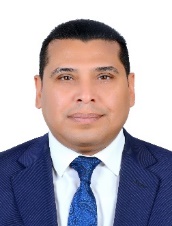
Founder & Managing Director’s Message
Nama Holding Group
Dr. Hassan Hafez Al-Qasr
Founder, Managing Director & CEO
The Egyptian state places great importance on diversifying financing methods. In this context, the Egyptian government has taken a significant step by entering the sovereign sukuk market as one of the financing tools that can help attract more investments, reduce the burden on the state’s general budget, and finance and develop various investment and service projects through investors and sovereign funds. Accordingly, Law No. (138) of 2021 on Sovereign Sukuk was issued, enabling the issuance of sovereign sukuk in accordance with various Sharia-compliant structures. Building on this foundation, Egypt successfully launched its first sovereign sukuk issuance, and more issuances are expected in the coming years, as sukuk have become a new financial lifeline for the Egyptian state.
Driven by the strong initiative led by the Egyptian government to stimulate the sukuk market, this move serves as a powerful incentive for Egyptian companies to diversify their funding sources. These sources now include traditional financing tools such as various types of bank loans, issuing shares and bonds via the Egyptian capital market, and adopting more advanced financing methods such as issuing corporate sukuk based on structures recognized in international financial markets.
Within this framework, Nama Sukuk Company—a subsidiary of Nama Capital—is actively contributing to the development of this promising market. The company supports Egyptian businesses in diversifying the financing of their projects and expanding their operations in the local market by offering various types of sukuk. These offerings focus on four main structures:
Mudarabah Sukuk
Murabaha Sukuk
Musharakah Sukuk
Ijarah Sukuk (Asset or Service-Based)
As the Egyptian state takes firm and steady steps to encourage private sector participation in financing and developing a wide range of projects—and to accelerate economic growth by adopting innovative financing tools, particularly sukuk in their various forms—this approach also significantly contributes to achieving higher rates of sustainable development.
It is important to emphasize that utilizing innovative financial instruments helps diversify funding sources and attract new segments of investors to the Egyptian capital market. This, in turn, will contribute to reducing financing costs for companies and achieving the optimal capital structure.
The transformation in this area is a credit to the Egyptian state and the Board of the Financial Regulatory Authority. One of the unique advantages of sukuk issuances lies not only in representing a common share in the ownership of assets, benefits, or rights of a specific project or its cash flows—as stated in the public offering prospectus or information memorandum—but also in enabling investors to monitor how the proceeds from the sukuk are used. Under the executive regulations of the law, the company has the right to oversee its investment and ensure it is used for its intended purposes, while also maintaining usufruct rights over the assets underlying the sovereign sukuk, in its capacity as an agent for sukuk holders.
Furthermore, sukuk issuances should not be seen as competitors to traditional debt instruments but rather as a new financing approach that Egyptian companies are expected to increasingly adopt over the coming years to develop and grow their projects and contribute to sustainable development.
Looking ahead, corporate sukuk issuances in Egypt are expected to rise, driven by growing interest in both international and local sukuk markets. This will empower companies to effectively diversify their funding sources, develop the underlying assets subject to securitization, and finance various projects—while keeping in mind the cost of funds and achieving the optimal debt structure for Egyptian enterprises.
